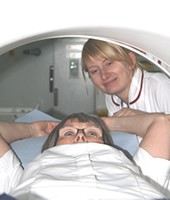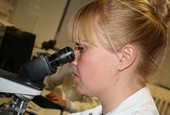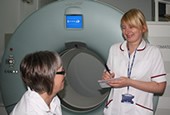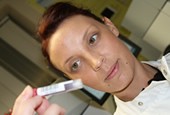What is Cancer?
Cancer is a group of conditions where the body’s cells begin to grow and reproduce uncontrollably. These cells can then invade and destroy healthy tissue, including organs. Cancer sometimes begins in one part of the body before spreading to other parts. This process is metastasis. Cancer is a common condition. Around 298,000 new cases are diagnosed in the UK every year. More than one in three people will develop some form of cancer in their lifetime.
Some changes to your body can be a sign of cancer and it is important to get checked out by your GP as soon as possible. If your GP suspects cancer, you will be referred to a hospital specialist, usually within two weeks. The specialist will carry out further tests and plan your future treatment with you if you are diagnosed with cancer.
Please visit the NHS website for more information about signs and symptoms.
Cancer is diagnosed using one or more tests:
- Biopsy
- Cytology
- X-ray (radiological) appearances
- Blood tests

A biopsy is the most important way of diagnosing cancer. It is the removal of a piece of tissue, which can be examined under the microscope by a pathologist who is trained to recognise the appearance of cancer (and other diseases).
Biopsies identify whether there is a primary or secondary cancer or whether there is pre-cancer (carcinoma in-situ). They are obtained with a needle or by a minor operation under local anaesthetic, or by a major operation using general anaesthetic.
Cytology is a collection of cells which can be examined under the microscope by a cytologist (pathologist) who is trained to recognise the appearance of cancer, and to identify whether cancer cells are present.
Cytology samples are obtained from a smear test, or from a needle taken from a lump or a fluid collection, or from a washing of part of the lung.

Sometimes it is not feasible to obtain a biopsy from a patient. In such cases, usually relating to the brain or lung, an X-ray or scan is used to diagnose cancer.

Blood tests on their own are not able to diagnose cancer, but occasionally they may help to confirm the results of cytology and X-rays or scans.





